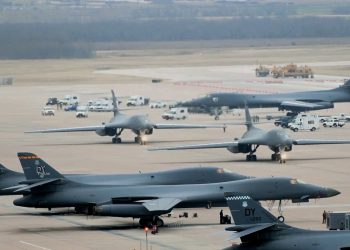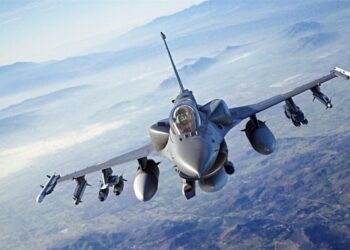Agence France-Presse,
Bangalore, India: South Asia's biggest airshow opened here Wednesday with firms from 25 countries showcasing their latest hardware in a chase for multibillion-dollar contracts with the Indian military.
Despite the global economic downturn, nearly 600 armament and aerospace companies — half of them from overseas — are taking part in this year's Aero India event in Bangalore.
Regional rival Pakistan has not been invited to the five-day event but China is participating for the first time, said India's Defence Production Secretary Pradeep Kumar.
Tensions between the nuclear-armed neighbours have soared in the wake of last November's attacks in Mumbai, which India blames on a Pakistan-based Islamist group.
Despite the deepening global slowdown, India's million-plus military says it cannot cut defence spending and plans to hand out contracts worth 30 billion dollars in the next three to four years.
| Click to Enlarge |
The defence budget accounts for 2.5 percent of GDP and India has imported military hardware worth 28 billion dollars since 2000.
“There is no question of scaling down our defence expenditure… or compromising with our acquisition programmes despite the economic recession,” said Defence Minister A.K. Antony.
“India has emerged as an attractive market and a key outsourcing hub for global aerospace firms due to low-cost, skilled engineers, good organisations, software and technology,” Antony added.
India's state-run Hindustan Aeronautics Ltd said it had won a contract to sell locally built advanced light helicopters to Ecuador.
“We will be selling five helicopters to Ecuador,” a spokesman said, declining to specify the size of the deal.
The sale buoyed India's hopes of finding a significant export market for its first domestically built helicopter. It also hopes to find buyers for a supersonic cruise missile it has jointly built with Russia.
US defence firm Raytheon, which last year signed deals with eight local firms to develop military electronics, has offered its Airborne Standoff Radar systems to help India reinforce its coastline defences.
India began beefing up offshore security after the Mumbai attackers travelled unnoticed by sea.
“We are open to joint development of products,” a Raytheon spokesman said.
“After the Mumbai attacks, we're making all-out efforts to prevent similar kind of incidents by making our armed forces and intelligence agencies work together as a team and equipping them with the latest arms,” minister Antony said.
Leading the pack of countries sending 303 international firms to the event are Germany and France with 31 firms each. Twenty-six British, 24 Russian and 22 US firms are also present, along with 289 Indian defence companies.
Among the prime pickings is a 12-billion-dollar deal for 126 fighter jets. Six major aeronautical firms competing for the contract are participating in the air show.
Besides the 126 fighter jets, transport aircraft and AWACS, India also plans to buy 700 helicopters worth 3.5 billion dollars, artillery, warships and other hardware for billions of dollars.
Israel, which replaced France in 2007 as India's second-largest arms supplier after Russia, has sent its top 10 defence firms.










